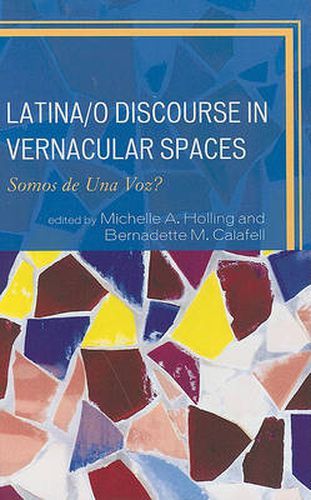Taking up the charge to study discourses of marginalized groups, while simultaneously extending scholarship about Latina/os in the field of Communication, Latina/o Discourse in Vernacular Spaces: Somos de Una Voz? provides the most current work examining the vernacular voices of Latina/os. The editors of this diverse collection structure the book along four topics-Locating Foundations, Citizenship and Belonging, The Politics of Self-Representation, and Trans/National Voces-that are guided by the organizing principle of voz/voces [voice/voces]. Voz/voces resonates not only in intellectual endeavors but also in public arenas in which perceptions of Latina/os’ being of one voice circulate. The study of voz/voces proceeds from a variety of sites including cultural myth, social movement, music, testimonios, a website, and autoethnographic performance. By questioning and addressing the politics of voz/voces, the essays collectively underscore the complexity that shapes Latina/o multivocality. Ultimately, the contours of Latina/o vernacular expressions call attention to the ways that these unique communities continue to craft identities that transform social understandings of who Latina/os are, to engage in forms of resistance that alter relations of power, and to challenge self- and dominant representations.





